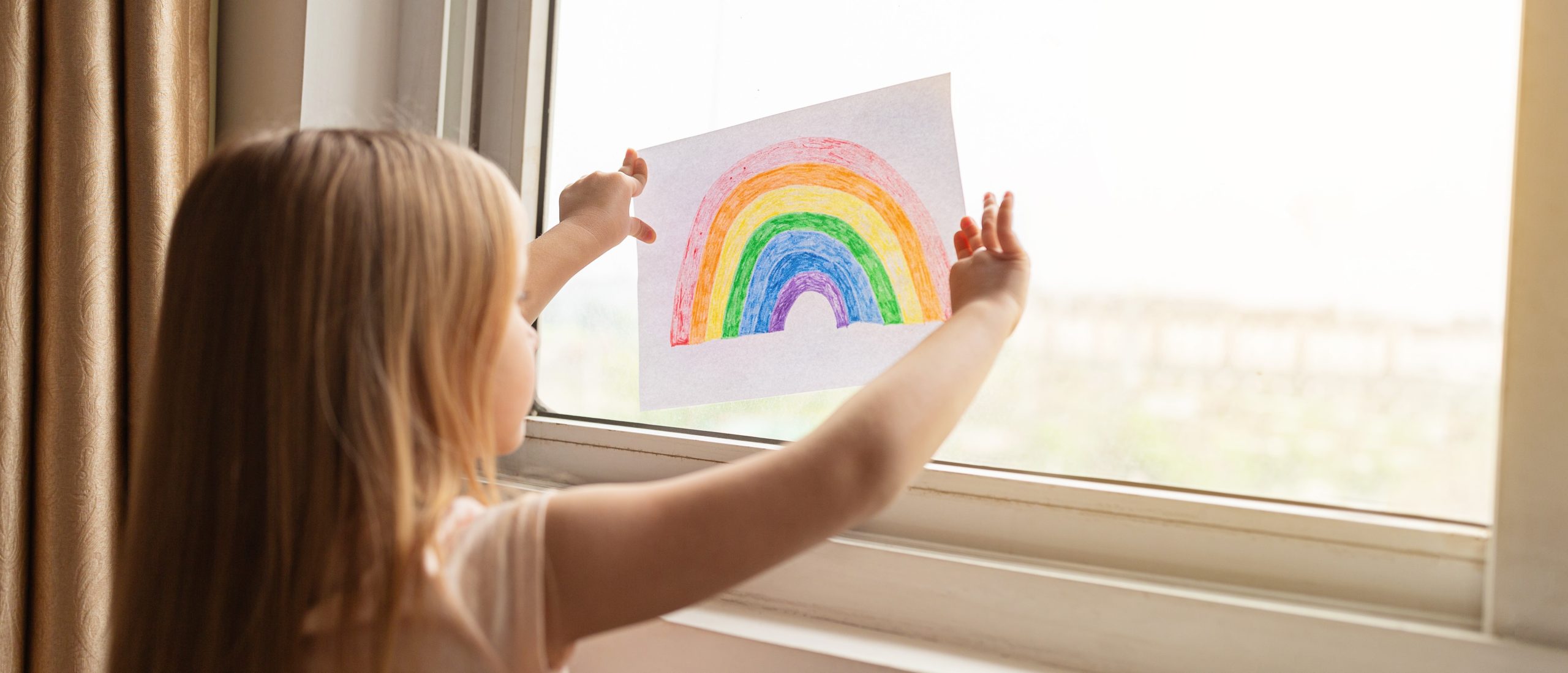
Maintaining healthy human relationships takes time and attention, even under the best of circumstances. For most of us, relationships require work. We invest in them whether they are romantic attachments, friendships, or familial connections. But maintaining strong relationships in times of intense stress is far more challenging. Consider the stressful circumstances that most of us have lived through for the past year. While we have undoubtedly been focused on the COVID-19 pandemic, the resulting emotional fallout and other unexpected and unintended consequences are going to be part of the so-called “echo pandemic” for years and possibly decades to come.
Let’s consider some of the circumstances we as individuals and families have faced and the impact they might have had on our children:
Grief:
Since the pandemic started, the Centers for Disease Control and Prevention (CDC) estimates that approximately 550,000 people have lost their lives to the COVID-19 virus, making it the third leading cause of death in 2020 behind heart disease and cancer. This has undoubtedly had a tremendous impact of millions of people, including children who are likely losing loved ones for the first time in their lives at an alarming rate.
Loss:
Aside from the loss of life, children have lost rites of passage like starting a new school, attending dances and big games, being celebrated at graduation ceremonies, etc. Children may have lost something even more precious than landmark events, however. Many have lost their sense of security as their homes have been shaken by uncertainty and financial hardship. COVID-19 has hit children hard and the effects of the outbreak have been felt most intensely in minority households.
Isolation:
2020 was not a normal year for anybody. When the entire globe was engulfed in an unprecedented health crisis, countries went into lockdown and children began homeschooling. This resulted in a host of mental health issues, including anxiety over academic performance, difficulty focusing using long-distance technology, and missing out on the natural socialization that comes with in-person classes. Children have certainly sacrificed a lot. At the same time, they’ve had to face spending all day in sometimes very difficult home situations.
Abuse:
Children already living in tenuous circumstances have almost certainly fallen through the cracks when it comes to abuse, neglect, and household dysfunction – the three areas that make up the primary ACEs (Adverse Childhood Experiences). We know that rates of alcoholism and drug abuse have skyrocketed in American homes, and so has childhood depression. According to Johns Hopkins All Children’s Hospital, from April through November of 2020 there was a 35% increase in children who needed mental health assistance compared to 2019 and an uptick in suicide attempts as well.
The Headlines:
While COVID-19 and issues surrounding vaccination and mask-wearing are ongoing, we cannot forget that everyday social ills are still happening simultaneously. The recent anti-Asian hate crimes and the beginning of the trial of officers involved in the murder of Floyd George are raising anxiety levels in children, particularly among those of Asian dissent, minority religions, and black and brown children.
Seven Ways to Build Resilience
Is it any wonder our children are struggling? Even though our reserves may be depleted, and many family relationships are burdened by the cumulative effects of fatigue and added hardship, now is the time to work on building resilience – in or children and for our families.
Resilience is the ability to bounce back from stress, adversity, failure, challenges, or even trauma. While scientists believe that resilience may have a genetic component, it’s not generally a quality that a child either has or doesn’t have; it’s really more of a skill that a child develops as they grow. Like a muscle that needs to be exercised, children can be helped to practice their resilience skills.
Talk. Talk. Talk.
The old adage is true: Keep the lines of communication open to strengthen your relationships. You can use the technique of asking open ended questions in order to draw out your children’s true feelings on different subjects. This means asking questions that require more than a simple yes or no answer. You can ask your child how certain situations make them feel. You can ask them if they’re experiencing anxiety or trepidation about going back to school. Asking “why” questions tends to get to the root cause of issues rather than asking questions that simply require factual answers. Open communication develops trust. Children who believe they can speak to their parents openly and honestly feel as if they have someone to rely on, someone who won’t automatically judge them, and these positive adult influences help buffer the effects of stress.
Allow Children to Learn and Fail
As adults, particularly as parents, we sometimes try to jump in to prevent our children from failing. It is difficult to watch them struggle when we know we could help. But children need to take risks and push themselves outside their comfort zone to build resilience. Trying something new and succeeding at it gives a child a sense of achievement and the knowledge that they can do new things and do them well. However, trying and failing is equally valuable. Taking a risk with something new that does not work out teaches children that they can survive setbacks. Rather than helping our children avoid risks, we should encourage them to take safe risks and then talk through the meaning of success and failure.
Teach Problem-Solving; Don’t Give Answers
Adults often have the answers to small problems and issues, but we learned those solutions from years of living our lives. Children do not have the benefits of this wisdom. They are still learning. They don’t have the perspective of time and experience. Rather than providing your child with the answer to every question, it’s more beneficial to let them reason it out with you. You can ask skillful questions to lead them along the right path, but the lesson is better learned when they reach the conclusion on their own.
Help Identify Emotions
Children who are “acting out” are often behaving that way because they lack the language to describe the frustration they are feeling. They lack the ability to adequately express themselves. You can work with your child to identify the emotions they’re experiencing and help them reason out why they are experiencing them. For example, you might say to a child who cannot master a game and has started crying: “You feel frustrated because the game is hard and you can’t seem to get it right.” This is called reflection because you are simply mirroring back to your child what they are feeling and helping them identify and name the emotion. You can let them know that the emotion is normal and that it will pass. Labeling emotions and teaching children how to manage them is a large part of good parenting. You can learn more about childhood development, reflective listening, and limit setting in our manual for parents, teachers, and caregivers entitled: “A Way of Being with Children: A Trauma-Informed Approach to Resilience.”
Acknowledge Mistakes
It is not a weakness to acknowledge our mistakes. We all make them! The most honest and resilient people are happy to accept this fact. They share their failures openly and, more importantly, they share what they learned from them. You can share your mistakes with your children and let them know why you made the mistake and how you will do things differently next time. This is a key component of resilience. We will all face challenges in our lives and whether we succeed or fail, we should not miss the lessons that can be learned.
Coping Skills and Modeling Self-Care
Children learn through imitation. They look to the adults in their lives to learn how to respond and behave. So, it’s essential that we model positive behaviors that they can copy. As adults, we can demonstrate calming ourselves down when we are irritated or angry, practicing deep breathing, and focusing on positivity and a firm belief in a brighter future. You can learn some fun and useful breathing techniques for adults and children on our resources page. You can also model self-care, demonstrating to your children that it is OK to take time for yourself when we’re feeling overwhelmed. In fact, it is essential to practice kindness and self-love.
Bring Positives Into Your Life
There are activities that make all of us feel better. Scientific research shows the benefits of exercise and spending time in nature. Encourage your children to take part in outdoor activities. Play is one of the ways children express themselves and it is essential to healthy development. You can also encourage your children to develop an interest in crafts, art projects, music, drama, writing, and any other positive activity that allows them to express their individuality.
The more a child understands his or her uniqueness (and the more you can accept and appreciate them for who they really are), the more they will understand that they are equipped to face any adversity that may come their way…and that good times, positivity, and happiness lie ahead for them and their family.

Sign up now for news, events, and education about Adverse Childhood Experiences (ACEs) and promoting resilience.
By submitting this form, you are consenting to receive emails from: Center for Child Counseling, 8895 N. Military Trail, Palm Beach Gardens, FL, 33410. You can revoke your consent to receive emails at any time by using the SafeUnsubscribe® link, found at the bottom of every email.
